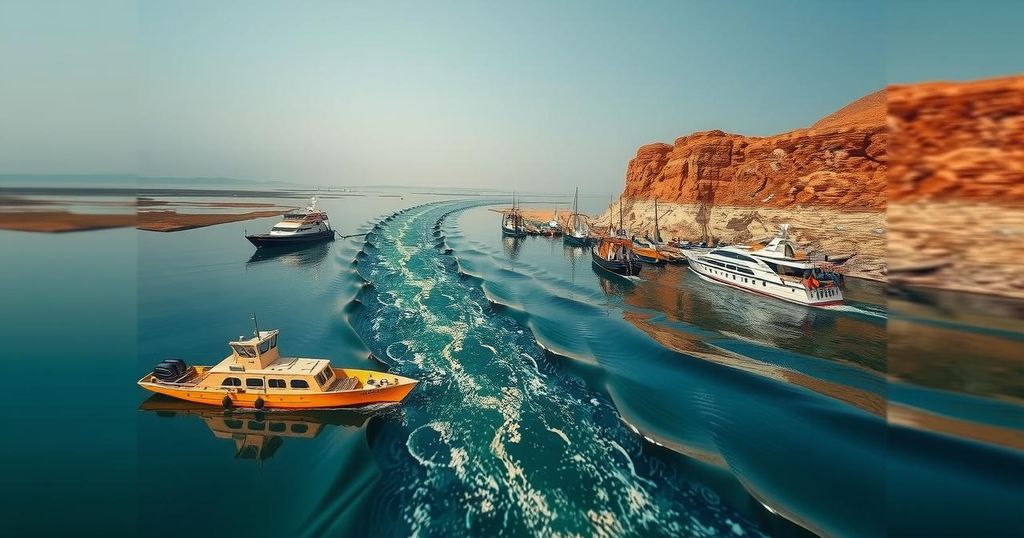Sudan’s Foreign Minister Ali Youssef discussed the Nile Basin and the Grand Ethiopian Renaissance Dam with Egypt’s Sameh Shoukry amid the implementation of a controversial regional water treaty opposed by both nations. The treaty aims to form a Nile River Basin Commission, but Sudan and Egypt argue it violates international law and excludes key stakeholders. Ministers from Nile Basin countries also met to discuss the commission and tour the GERD soon.
On November 4, 2024, Sudan’s newly appointed Foreign Minister, Ali Youssef, engaged in a discussion regarding the Nile Basin and the contentious Grand Ethiopian Renaissance Dam (GERD) with his Egyptian counterpart, Sameh Shoukry. This dialogue occurred in the context of a newly implemented regional water treaty that both Sudan and Egypt have opposed. Despite the treaty’s enforcement, Youssef reiterated Sudan’s commitment to collaborating with Egypt on matters concerning the Nile River. The conversation followed the entry into force of a Nile Basin treaty, which South Sudan joined in July, thus paving the way for the formation of a Nile River Basin Commission. As per diplomatic sources, Minister Shoukry sought clarity on Sudan’s stance regarding this treaty and the envisioned commission. Both nations have expressed significant dissent towards the treaty, contending that it contravenes international law and fails to adequately represent all nations within the Nile Basin, particularly criticizing the inclusion of Ethiopia and other East African nations. In addition to their opposition to the treaty, Sudan and Egypt have consistently voiced their concerns regarding the establishment of the Grand Ethiopian Renaissance Dam, which is nearing completion. On the same day, representatives from several Nile Basin countries convened in Addis Ababa to discuss the formalization of the commission and are set to visit the GERD site soon. This situation highlights the ongoing tensions surrounding water resources in the region, which are of pivotal importance to all parties involved.
The Nile River Basin is a crucial and historically contentious resource for several East African countries, with Egypt and Sudan relying heavily upon its waters for their agricultural and drinking needs. The recent Nile Basin treaty, which was supported by various states within the region, including South Sudan, aims to facilitate cooperation among Nile Basin countries. However, Egypt and Sudan argue that their rights to the river’s resources are threatened by this treaty, viewing the proposed commission as lacking representation for all countries sharing the Nile’s waters. Ethiopia’s construction of the Grand Ethiopian Renaissance Dam has exacerbated these tensions, as both Egypt and Sudan fear it will diminish their water supplies significantly.
In summary, the discussions between Sudan and Egypt regarding the Nile water sharing are crucial in the context of a newly enacted treaty that both nations oppose. Their commitment to collaborate underscores their shared concerns about the Nile River’s management and the GERD’s implications. As regional negotiations continue, the ability of these two nations to navigate the complexities of water rights and international cooperation will significantly influence the future of the Nile Basin.
Original Source: sudantribune.com





